Winterizing Your Chicken Coop: How to Care for Your Chickens in Winter
Once you notice those snowflakes hitting the floor, you’ll know that it’s time to begin winterizing your chicken coop. Chickens are sensitive to the cold weather, and can often fall victim to freezing if they don’t have proper shelter. Whether this is your first year owning a flock, or if you’re a seasoned professional looking for a reminder, this article will have all the information you need regarding how to keep your chickens safe and warm during the cold and unforgiving winter months.
Why Winterizing the Chicken Coop is Important
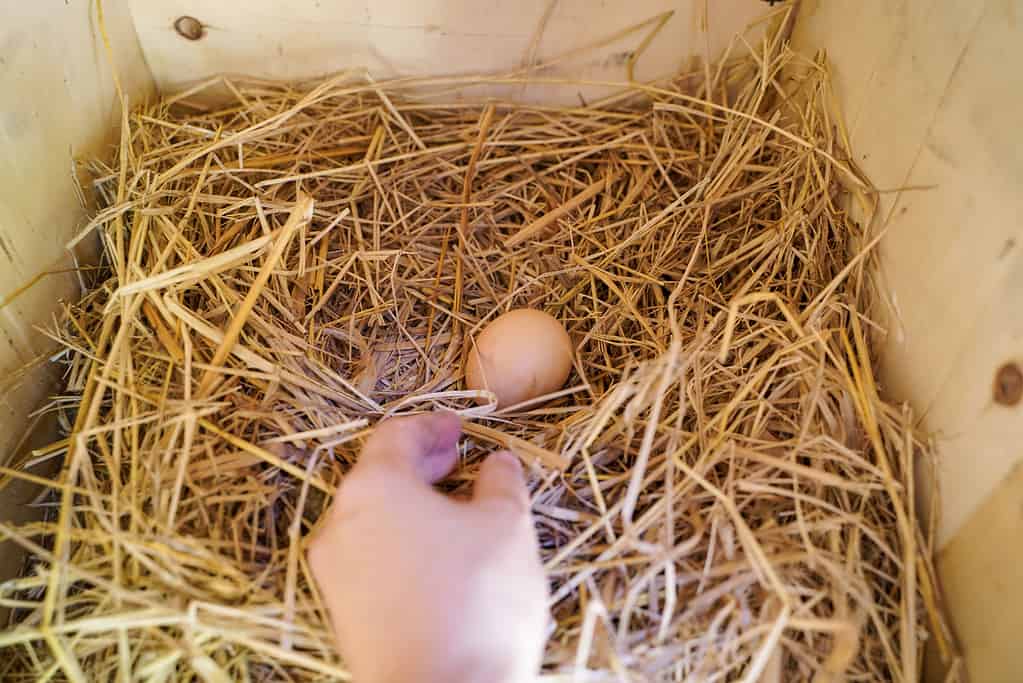
©iStock.com/happydancing
Before we go into detail about how you can properly winterize your chicken coop, let’s explain what makes it so important. Firstly, chickens have high natural body temperatures. Even higher than that of humans, which is actually true for all birds. They need to maintain this temperature to ensure their health and safety. The strain that cold stress can place on your chicken’s body can be detrimental to their health. It can result in weight loss, fatigue, and at worst- frostbite, hypothermia, and death.
Naturally, these are things we want to avoid. Chickens need an environment that is safe and warm during the winter. Keeping the warmth in, and also, keeping potential predators out. Winter threats are no joke, especially since your chickens will, for the most part, be in one place for extended periods of time. Their emotional well-being is directly attached to their physical health. The initial cost of winterizing the coop versus the financial loss of having no egg production and potential chicken fatalities is a no-brainer.
In the next sections, we’ll be going over the four most key steps in making sure that your chicken coop is at its best for the coming winter season. If you’re proactive and consider all of these things ahead of time, you’ll surely have an easy winter season on your hands. (And, of course, plenty of healthy and happy chickens!)
1. Ensure Strong Ventilation
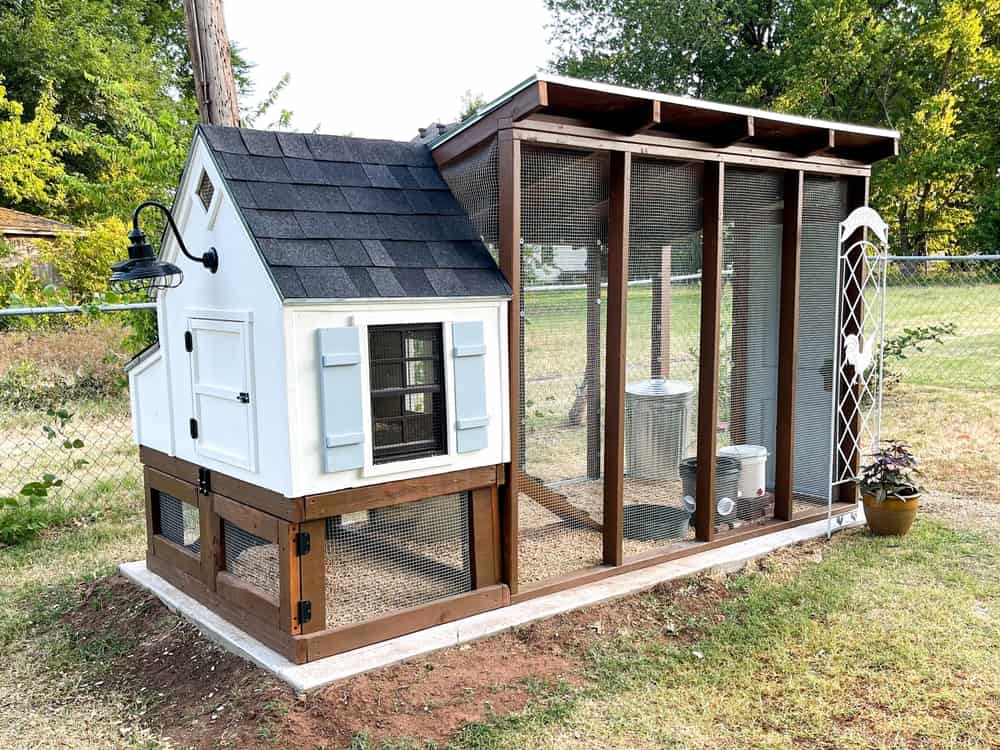
©Courtney Jenckes/Shutterstock.com
Having solid ventilation is one of the most important parts of a coop during any season. But, it becomes especially important during the winter months. Without ventilation, there are a few hefty risks. First off, the chickens will be exposed to damp conditions that can have strong negative impacts on their health. Chickens can become especially susceptible to respiratory illnesses, and the buildup of dust and ammonia is very poor for them. With the already troublesome conditions that come alongside winter, you certainly don’t want to add a disease outbreak to the list.
As we’ll touch on later in the article, insulation is key to winterizing your chicken coop. However, too much insulation can potentially compromise the proper coop ventilation. This results in a strong balancing act that can sometimes be tedious. Here are a few methods you can implement to help secure this balancing act.
- Use hardware cloth, which can cover openings such as windows and fences without actually letting out the warmth. There is still airflow, but it isn’t so great that it will combat that insulation.
- If you opt for something like plexiglass, be sure to leave a few small openings at the top of the coop. This natural ventilation will play a key role in keeping the area dry and fresh. A coop that is dry is one that will be much more healthy than one that is wet and slightly warmer.
- This last recommendation is only for those who feel they check on their coop often enough. If you have windows, you can honestly just leave them partially cracked for the majority of the day, and close them during evenings or very cold times.
2. Install Some Winter-Proof Equipment
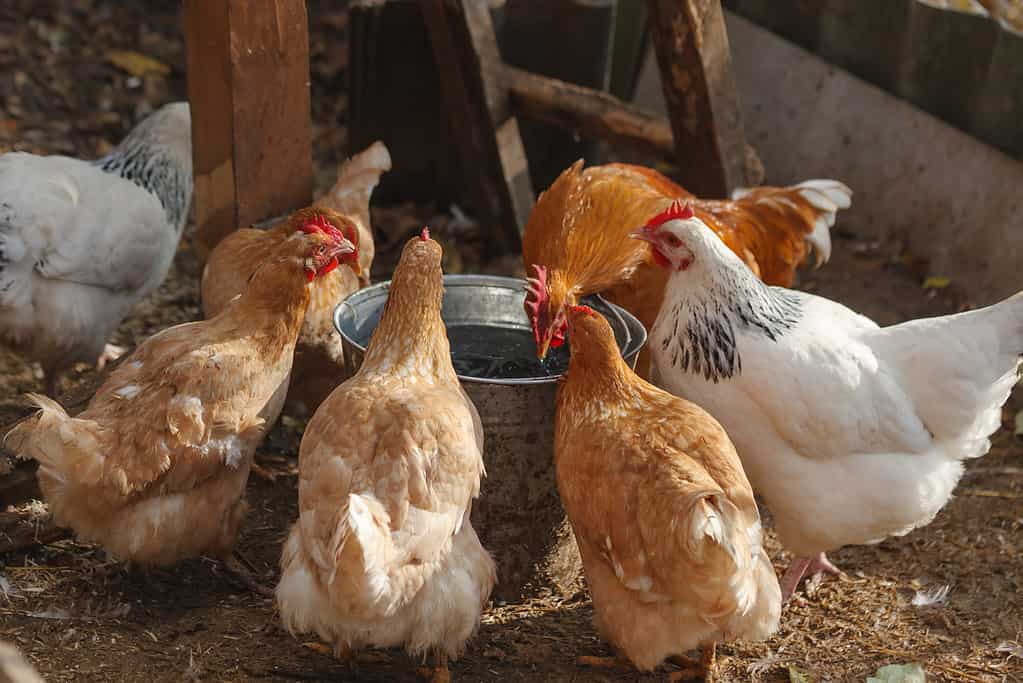
©Olesya Andreeva/ via Getty Images
When winter time comes around, you have to make sure all of the equipment in your coop is prepared for it. The implementation of this equipment has the chance of preventing a number of risks that happen around wintertime. It can make things more efficient, and combat issues that you might not have thought about. Here are some examples.
Water Heaters
Imagine this, from the perspective of a chicken. You spend the day inhaling cold, dry air. Your throat probably hurts, right? So, you go to take a drink of water, only to discover it has frozen over entirely! You absolutely want to avoid this scenario, so it’s best that you install water heaters of some type. You can do something like use heated pet dishes, wrap some heat tape around any of your water systems, or even develop some kind of solar cover.
Auto-Feeders
Something that can get a bit tedious during the winter, especially if your coop is far from your home, is visiting multiple times a day. That’s why a potentially important tool in winterizing your chicken coop is installing automatic feeders. There are some pretty sophisticated ones out there. You should, of course, be checking on your flock regularly. But, there are some evenings where you’d really rather wait until daylight. That’s okay, as long as you have a plan!
Winter-Ready Bedding
Nesting beds should always be a warm, cozy space for your chickens. But, come winter, this is especially important. Make sure that the layer of bedding is especially thick during this season. Use materials that have quality insulation, and can help keep the interior warm. This can be anything from wood shaving to particularly thick straw layers.
3. Provide Some Insulation
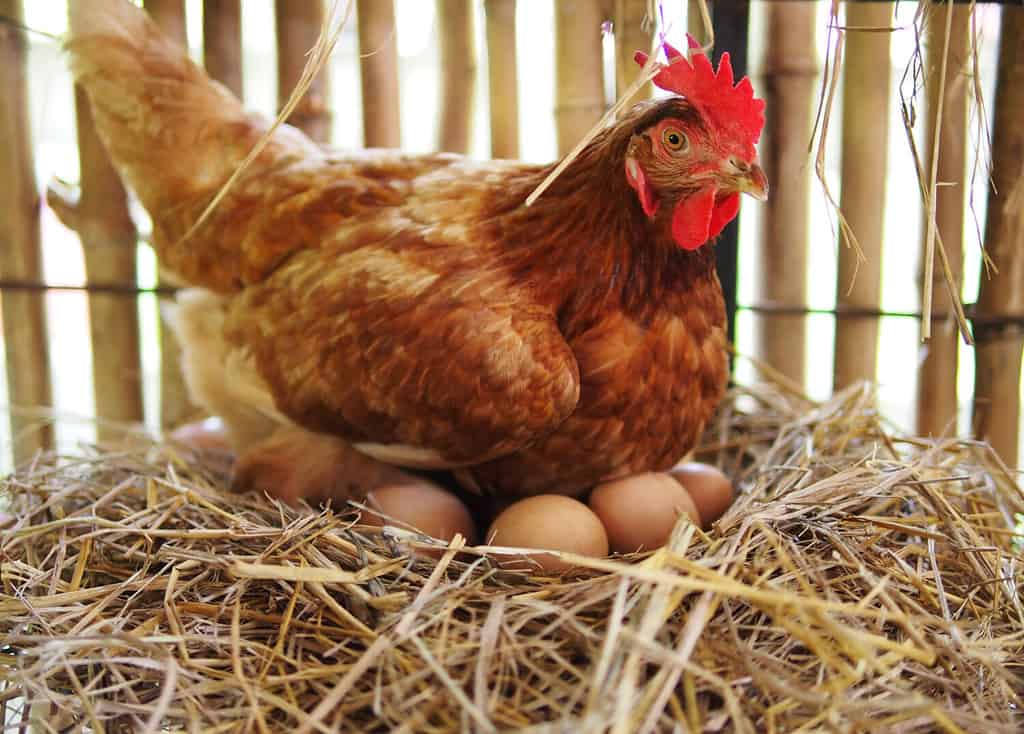
©PhotoSongserm/Shutterstock.com
As we briefly touched on in the ventilation section, insulation is very important in winterizing your chicken coop. This is the case for fairly obvious reasons- no one wants cold chickens! Having proper insulation creates a stable environment that doesn’t fluctuate like the outdoor weather. This stability is very important for the health of your chickens. Plus, if your coop is well-insulated, you can save a lot of energy and costs by reducing your need for other heating sources. This short-term investment, as you can tell, is highly beneficial in the long run! Below are some of the most effective and common kinds of insulation.
Foam Board Insulation
Foam board insulation is tried and true, an option well known for its ability to provide high cold resistance despite being relatively thin. Its thin nature makes it ideal for coops that have little internal space and can’t handle bulky insulation materials. Another benefit of this kind of insulation is that it has a high moisture resistance. Because of this, it can be considered an extra layer of protection for your coop against issues with dampness. Though be warned, some chickens do like to peck at this insulation, and it can be a bit costly.
Fiberglass Insulation
The use of fiberglass is a bit new, but those who use it often swear by its effectiveness. It minimizes heat loss through walls and ceilings very effectively and takes a while to wear down when compared to other options. That said, the small fibers of the glass, when eventually worn, have the potential to become irritants to your chicken. So, always be on the lookout and regularly inspect it for any signs of damage/need for replacement.
Reflective Insulation
This kind of insulation is best suited for a particular area/climate but works wonders in the right setting. It is a form of insulation consisting of a reflective foil paired with a backing material (such as paper or plastic). It works by reflecting the radiant body heat, increasing the internal warmth without the need for other heating devices. That said, due to its reflective nature, it needs some level of consistent sunlight. So, if you live somewhere that is both snowy and sunny, this is probably your best bet for winterizing your chicken coop and its insulation.
4. Prepare Your Yard
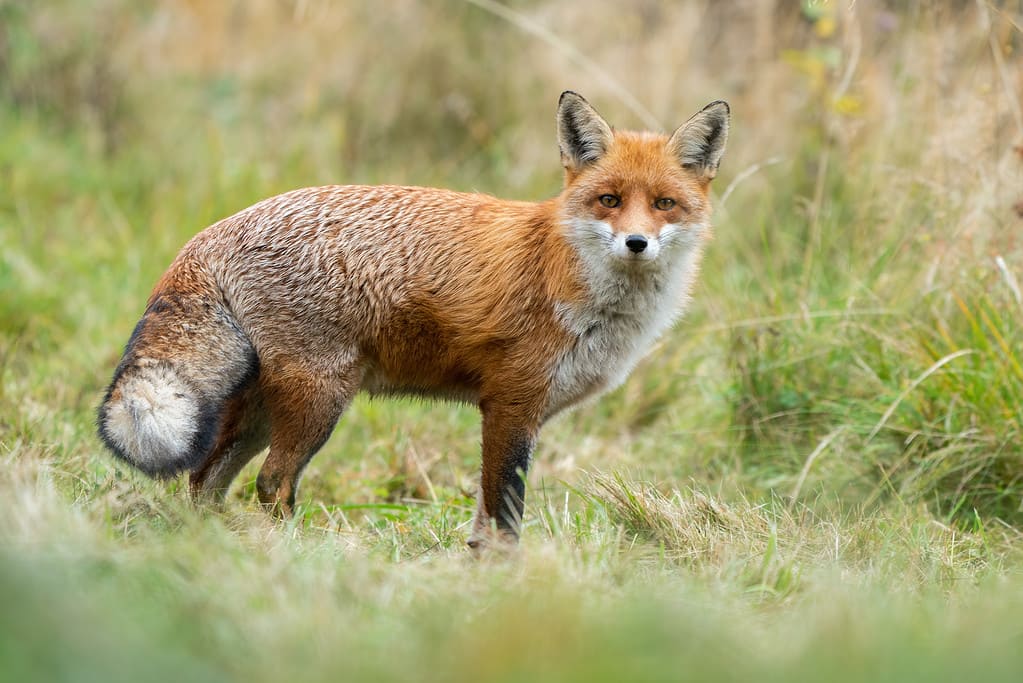
©JMrocek/ via Getty Images
The last step doesn’t involve your coop at all! Instead, it pertains to what is going on around and outside of it. There are many reasons why you should give your yard special attention during winter. In the case of your chickens, though, it can be key to their safety. For instance, there are scarce food sources for predators during this time. So, if they spot your coop, they could make a break for it. Be sure that there is a level of notable security, like a sturdy fence, protecting them while they graze.
Having time and space to roam around during winter is important. Your chickens have to remain active to some degree, and can’t stand being cooped (get it?) up all the time. Be sure that you regularly clean heavy snow from the area, and especially manage any icy conditions in order to prevent them from potentially hurting themselves.
You should also make sure that their food and water sources are accessible and protected from the elements. If your chicken’s eating habits are changing, or if you notice they are hardly being active, consider making some changes to the outdoor environment and investigating what the cause might be.









